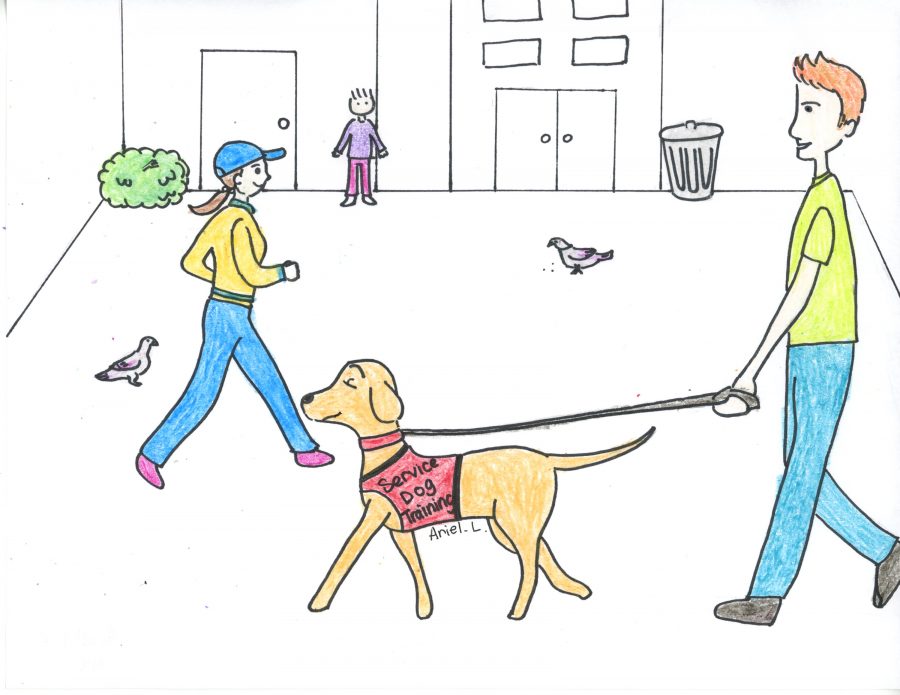Call off the service dogs!
Influx of superfluous “service” dogs undermine therapy resource
Dogs are truly man’s best friend, and this holds true especially for those suffering from a physical or mental impairment. These specially trained animals provide a service beyond measure for those who struggle with an issue that impacts every aspect of their daily life, accompanying their owner nearly everywhere they travel. However, it has recently come to light that some dog owners are purposely abusing the purpose and privilege that comes along with having a service dog.
According to Canine Corporations for Independence, there are three different types of dogs in service of people: emotional support dogs, therapy dogs and service dogs. Service dogs, as well as therapy dogs, are specially trained and registered to assist their owners with a particular disability, physical or emotional. Emotional support dogs, however, are regarded loosely in terms of definition. These dogs may not be specially trained or registered, but they assist their persons with an emotional issue.
While all three different types of dogs provide an invaluable service to the person they assist, the problem of owners taking animals that are not specially trained into public places has recently arisen.
Trained service dogs are reared from the time they are weeks old in special programs focusing on behavior in public as well as particular tasks. Many times when service dogs are in public, they can be seen lying next to their owner, making little noise and causing minimal disturbance. Dogs who are not specially trained, however, can cause disturbances and negatively represent the invaluable job service dogs provide.
By law, businesses are only allowed to ask two questions regarding service dogs: Does this dog assist with a disability? What task is this dog trained to perform? This limited scope of a given situation can often lead to discrimination in distinguishing a legitimate service dog from an untrained family pet. This discrimination is simply undue and unjust to the owner, adding more obstacles to an already difficult-to-navigate public life. If you were to put yourself into someone’s shoes living with a disability requiring a service dog, take into account the extra hassle and emotional pain that discrimination due to a service dog can bring into a person’s life. Imagine facing extra attention and personal questions brought on by just going about your daily life activities. Fortunately, the heartache of this discrimination can be greatly lessened by other members of society. By respecting what a service dog provides for a person with a disability, every person can make life a little bit easier for those facing extra challenges.
Take the example of Axel, an award-winning military service dog who assists his three tour veteran owner with PTSD; Axel was removed from an airline flight due to a flight attendant’s mistake in identifying and verifying Axel’s purpose as a service dog. Due to the influx of “fake” service dogs causing disturbances on flights, each dog is unnecessarily scrutinized for his or her purpose and service.
In conclusion, while it may be tempting to register Fido as a service dog, I implore you to remember the thousands of service dogs and owners throughout the country who may face undue discrimination due to this fraudulent act.
Your donation will support the student journalists of Saint Viator High School. Your contribution will allow us to purchase equipment and cover our annual website hosting costs.








